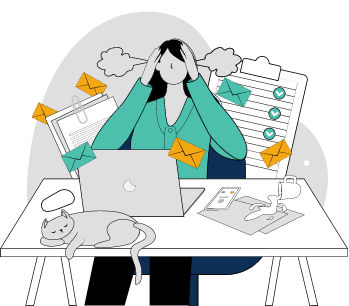Listen to this episode
On this episode
Do you sometimes find yourself thinking that you don’t have a choice? Your circumstances and obligations seem to prevent you from taking any course of action except for one. But the thing is, we always have a choice. We choose all the time. Life is made up not of the big choices we have to make but of the little, compounding choices we make on a daily basis. So what choice will you make today? You choose.
In this You Are Not a Frog Quick Dip, Rachel delves into choice. She shares the one thing healthcare professionals get wrong about choice and why we find its concept difficult. She discusses the concept of the Zone of Power and how it can help us assess what’s in and out of our control in making choices. At the end of the day, we only have one wild and precious life — it’s your choice how to spend it.
If you want to know how to begin making choices with unclouded acceptance, tune in to this episode!
Show links
You Choose! by Nick Sharratt and Pippa Goodhart
The Summer Day by Mary Oliver
The Choice by Edith Eger
Loss and Gain by John Henry Newman
You Are Not A Frog Episode 123: How to Live With No Regrets with Georgina Scull
Regrets of the Dying by Georgina Scull
Stay within your zone of power through the Zone of Power handout.
Join the Permission to Thrive CPD Monthly Membership Programme for Doctors here!
Reach out to Rachel at hello@youarenotafrog.com
Sign up to get your CPD workbook for this episode
Reasons to listen
- Discover what it means to live a wild and precious life.
- Learn how to get out of the victim mentality that we don’t have a choice.
- Understand the concept of the Zone of Power.
Episode highlights
You Choose!
Making Choices
Living a Wild and Precious Life
What Healthcare Professional Get Wrong about Choice
Recognising Your Zone of Power
Choice and Losses
Embracing Serenity
Why We Find the Concept of Choice Difficult
Regrets of the Dying
Zone of Power Exercise
Episode transcript
Rachel Morris: This is a You Are Not A Frog Quick Dip. A tiny taster of the kinds of things we talk about on our full podcast episodes. I’ve chosen today’s topic to give you a helpful boost in the time it takes to have a cup of tea, so you can return to whatever else you’re up to feeling energised and inspired. For more tools, tips, and insights to help you thrive at work, don’t forget to subscribe to You Are Not A Frog wherever you get your podcasts. When my kids were little, there was one book that…










